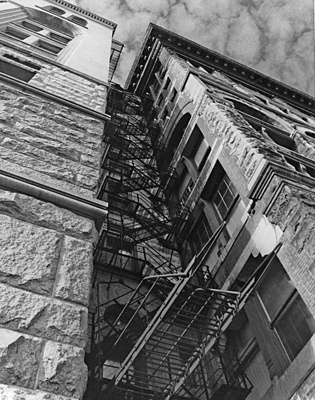All Nonfiction
- Bullying
- Books
- Academic
- Author Interviews
- Celebrity interviews
- College Articles
- College Essays
- Educator of the Year
- Heroes
- Interviews
- Memoir
- Personal Experience
- Sports
- Travel & Culture
All Opinions
- Bullying
- Current Events / Politics
- Discrimination
- Drugs / Alcohol / Smoking
- Entertainment / Celebrities
- Environment
- Love / Relationships
- Movies / Music / TV
- Pop Culture / Trends
- School / College
- Social Issues / Civics
- Spirituality / Religion
- Sports / Hobbies
All Hot Topics
- Bullying
- Community Service
- Environment
- Health
- Letters to the Editor
- Pride & Prejudice
- What Matters
- Back
Summer Guide
- Program Links
- Program Reviews
- Back
College Guide
- College Links
- College Reviews
- College Essays
- College Articles
- Back
The Fading Red Paper
Munching on the steaming pastry, my mom squeals with childish delight, “This tastes just like it did when I was little!” Every year we visit Jinan, my mom’s hometown in China’s Shandong province, we buy the local handmade, freshly baked sesame pastries. As my teeth sink into the delectably crunchy exterior and soft, mouthwatering layers underneath, my mom comments, “I can’t believe these cost nearly the same as twenty years ago: one yuan!” My uncle, who is driving us around the city, points to a cluster of buildings and adds, “On the other hand, those apartments have skyrocketed in price!”
As we gaze out the window, I remark, “Jinan looks different every year I visit.” Nodding enthusiastically, my uncle narrates throughout the ride and gestures passionately toward each landmark that we pass, including the newest tunnel, skyscrapers, and highways.
After we leave my uncle’s car, my mom and I tour Jinan’s famous Baihua Pool, reveling in the natural beauty and the sheer number of people and food booths everywhere. Voices yelling, “Fresh coconuts!” or “Stinky tofu!” fill the streets as vendors sell local foods and goods to hordes of eager visitors. Smells of all kinds waft toward me, from refreshing plum juice to savory roast meat to steaming dumplings.
When we finish our stroll, and with our stomachs satisfied, my mom decides to show me her late aunt’s old home nearby. On the way, I stare in awe at exquisite water lily flowers in the pool that have just begun to unfurl their delicate pink petals among the bright green leaves. Likewise, ornate, newly constructed bridges around the water complete the serene scene.
Once we take a turn away from the lake and enter the polished white gate that marks the start of my great-aunt’s former residential area, several dilapidated houses and winding dirt paths littered with trash greet us. Few traces of modernization seem to have reached this neighborhood: if anything, the beauty and prosperity on the outside highlight the abject scarcity on the inside. Homes still lack running water, so residents use a communal toilet and faucet. It is as if these houses are abandoned and hidden.
As we meander along the uneven trails, my mom relates memories of her aunt, who spent her entire life in the small, dark house and sold handmade noodles on the street for a living. One time, my great-aunt, with the utmost gravity, pressed a paper into my mom’s hand and earnestly said, “Take it. Don’t look at it now.” Trembling in anticipation, my mom, then a little girl, later opened the carefully folded paper and saw the grand surprise: one-tenth yuan, less than a nickel in American money. My mom continues, wistfully recalling how her aunt once bought her a candy she wanted. “I still feel guilty because I know how much the candy must have cost her,” admits my mom as she stares at her aunt’s crumbling walls.
While my mom reminisces, I walk around and envision life in the house. When I spot a pile of cooking supplies covered in cobwebs, an image of my great-aunt squatting on the dusty ground and meticulously kneading dough flashes through my mind. A rusting pot sits in the corner, some utensils scattered casually around it. Were these what she used to make her noodles? I wondered. On a battered door nearby, a fading red paper for good luck stands out from the surrounding gray hues, valiantly battling the ravages of time. Though I have never seen my great-aunt, I imagine her attaching the sign, taking care to rotate it to fit perfectly in the center of the wooden door.
During our walk back to the car, the images from the house reel through my mind. Water pail. Rusty utensils. The red paper. A long banner on the side of the road catches my eye. Like my aunt’s, it is red – only newer and more vibrant. It carries the same message, though: hopes for prosperity and comfort.
By the road, I see a food stand where three elderly women stand rolling dough with their wrinkled but adept hands to make delicate pastries. The smell of fresh flour wafts through the air, only to mix with the odor of gasoline. Though initially balking at the bizarre combination, I realize that it embodies the cross-section between history and present. Amid the rapid modernization of society, tidbits from the past – just like the pastry – persist to remind us of the inherent culture shared to this day. And with those pieces, stories like my aunt’s will continue to enrich our memories.

Similar Articles
JOIN THE DISCUSSION
This article has 0 comments.

Inspired by my visit to China, I wrote this piece to celebrate what I saw and cherish the memories of the past.